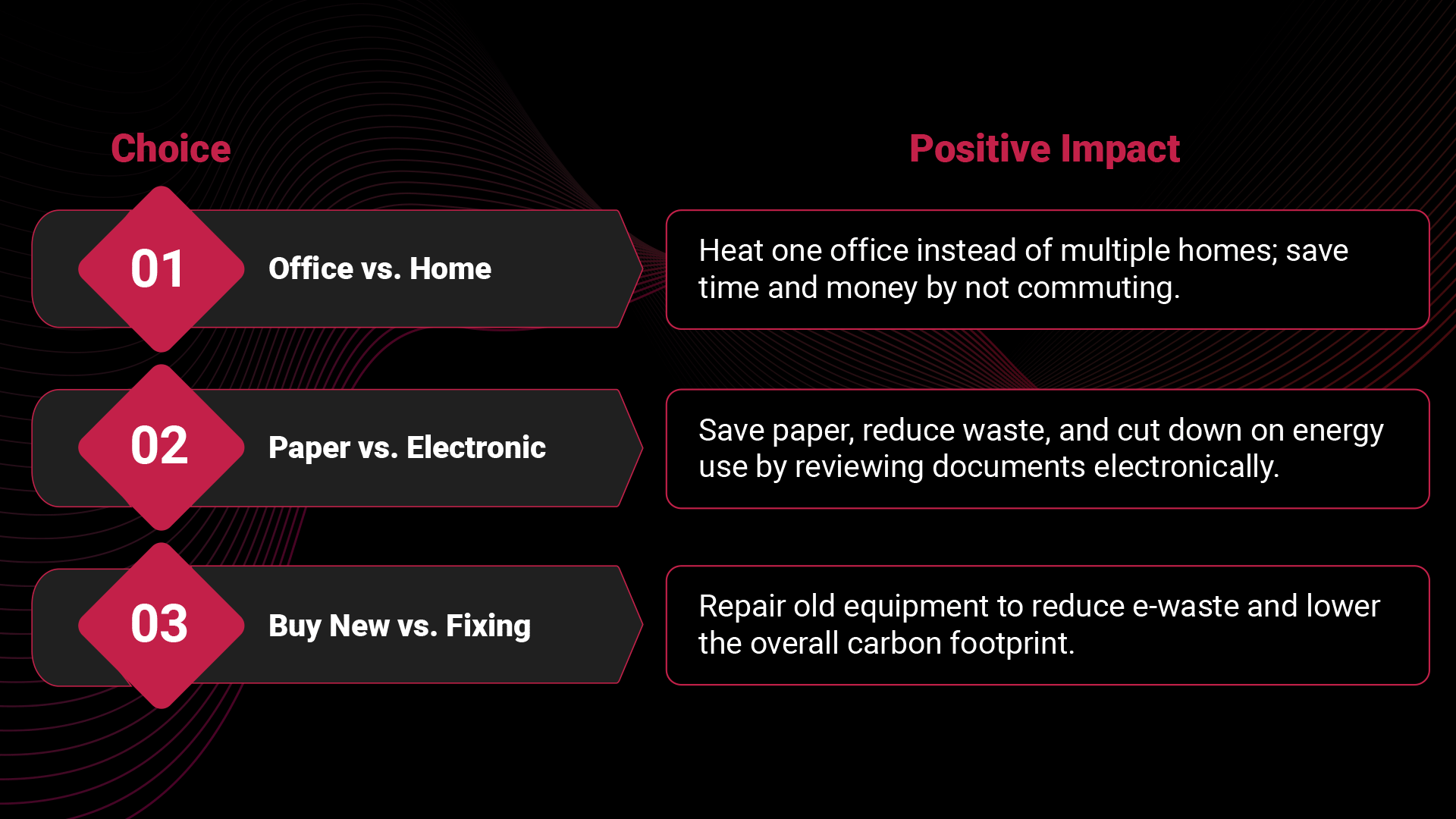At Phastar, we are passionate about accelerating the pace of clinical development through specialist biometrics and data science solutions, supporting our clients in their mission to improve human health. But as we work with our clients to develop better treatments, it is important to reflect on the impact our industry has on the planet. From the carbon footprint of daily tasks to the environmental effects of technology, we all play a part in shaping the future of our world. As part of our commitment to a strong environment, social, and governance (ESG) agenda, we must consider how we can make simple yet impactful choices to reduce our carbon footprint, both individually and collectively.
Understanding Carbon Footprints
The concept of carbon footprint refers to the amount of carbon dioxide equivalent (CO2e) released into the atmosphere due to our actions, whether personal or professional. In the workplace, especially in the field of healthcare data science, many of our activities contribute to emissions, from traveling to office meetings to the energy used in running complex algorithms. The average person in the EU emits 7.25 tonnes of CO2 per year. (1) While this figure may seem large, small, mindful changes can have a significant impact. By carefully considering our choices, we can reduce emissions and take a more sustainable approach to our work and lifestyle.
Surprising Stats: The Environmental Cost of Everyday Choices
It is easy to overlook the environmental impact of seemingly insignificant actions, but the statistics reveal a more concerning picture.
These statistics highlight the often-overlooked environmental costs of modern life, costs that can be mitigated by making thoughtful, sustainable choices.
Green Coding: A Simple Change with Big Impact
In the field of healthcare data science, we often focus on optimizing algorithms to improve efficiency and outcomes. However, we must also consider the environmental impact of our coding practices. Efficient coding not only improves performance and speeds up processes, but it can also reduce the energy required to run these programs. For example, consider a study where programs are run 20 times per year. By optimizing the code to run just one second faster, over the course of a year, that could save more than 1.5 hours of computing time! While this might seem small, the collective impact of such efficiencies across thousands of studies could lead to significant reductions in energy use and carbon emissions.
Making Thoughtful Choices for a Greener Future
From travel to technology, each decision has a ripple effect on the planet. By weighing the environmental cost of our actions, we can make better choices that align with our commitment to reducing our carbon footprint.
Here are a few examples of how we can make a difference:

A Sustainable Future at Phastar
At Phastar, leading the CRO industry in corporate responsibly is a core part of our mission. This extends across all our operations, from healthcare data science to our day-to-day activities. Our EcoVadis sustainability rating places us within the top 35% of companies. As a certified B Corporation®, we hold ourselves to the highest standards of social and environmental performance, accountability, and transparency. Our partnership with the Science Based Targets initiative (SBTi) further reinforces our commitment to achieving net-zero emissions. We’re also proud of our inclusion in the 2024 Environment 100 List, which recognizes companies that are leading the way in sustainability.
Conclusion
As we work to advance healthcare data science, we must remain mindful of our environmental footprint. Whether it’s through green coding, reducing e-waste, or making more sustainable choices in our daily lives, every small change adds up. By being conscious of the impact of our decisions, we can create a healthier future for both people and the planet. At Phastar, we’re committed to leading the charge, making choices that align with our sustainability goals, and ensuring a better tomorrow for all.
References:
Statista. (2024, May 22). CO2 emissions per capita in the EU. Retrieved from: Statista.
Molloy, D. (2020, November 19). Technology. BBC News. Retrieved from: BBC News.
Unitar. (2024, March 20). Global E-waste Monitor. Retrieved from: Unitar.
EcoRes SCRL. (2023, July). Sustainability in Travel. Eurostar. Retrieved from: EcoRes SCRL.



